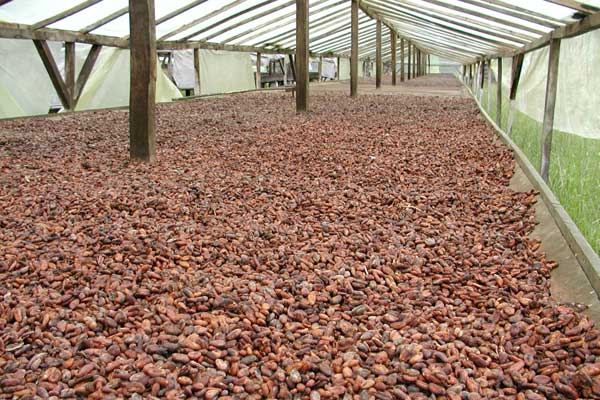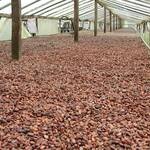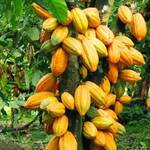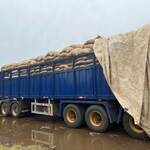Records available at the Ghana Cocoa Board (COCOBOD) reveal that local cocoa processing companies have been importing light crop cocoa beans into Ghana since 2005.
Most of these companies process light crop beans, which constitute less than 15% of the total crop of Ghana.
On average, only 10 – 15% of cocoa produced in Ghana is small-sized beans, which are sold at a 20% discount to the local processing companies.
Importation of the small-sized beans from other countries, which do not meet international requirements, also attracts a 15% discount.
The local processing companies, therefore, import light crop or small beans from other countries such as Cote d’Ivoire, Nigeria, Togo, and Ecuador, among others.
The big-sized bean is of higher quality and is sold on the international market at a premium.
About 85-90% of Ghana’s cocoa is big-sized beans, which are of premium quality and sold on the international market at a premium.
COCOBOD serves as the exclusive marketing intermediary between primary producers and processors of cocoa beans in Ghana.
As a result, companies require permission from COCOBOD to import beans into the country.
In 2008, Barry Callebaut with permission from COCOBOD imported 15,000 metric tonnes of light crop cocoa beans into the country from Nigeria and Togo.
It is made up of 7,000 metric tonnes from Nigeria and 8,500 metric tonnes from Togo.
In the 2014/15 season, local processing companies processed 160,000 metric tonnes of small-sized beans.
Out of this, Barry Callebaut imported 15,000 metric tonnes from Cote D’Ivoire.
In a letter dated November 22, 2016, COCOBOD granted Barry Callebaut permission to import 100 metric tonnes of cocoa beans from Ecuador as part of the company’s operational needs for a particular recipe for a customer.
In a letter dated January 25, 2024, Afrotropic Cocoa Processing Company received permission from COCOBOD to import 3,500 metric tonnes of beans comprising 2,500 metric tonnes from Cote d’Ivoire and 1,000 metric tonnes from Nigeria.
To attract foreign direct investments into the domestic cocoa processing sector, government offers investors a competitive package of economic incentives.
It includes price discounts, tax-free zones, and extended payment credit.
However, the increased growth of processing capacities has intensified competition for discounted beans, leading to reduced availability.
Despite the option for domestic processors to purchase main crop beans without a discount, this often proves economically inefficient due to high operational costs.
As a result, processors struggle to procure sufficient quantities of beans, hindering their ability to operate at full capacity.
Currently, the total installed capacity for processing cocoa is a little above 400,000 metric tonnes, giving the indication that the country is on the right path to achieving its medium-term policy goal of processing 50% of its cocoa before export.
- Monday, April 28, 2025 Newspaper Headlines - 28 April 2025
- Oquaye report findings revealed - 28 April 2025
- GFA President Kurt Okraku appointed CAF’s second Veep - 28 April 2025




